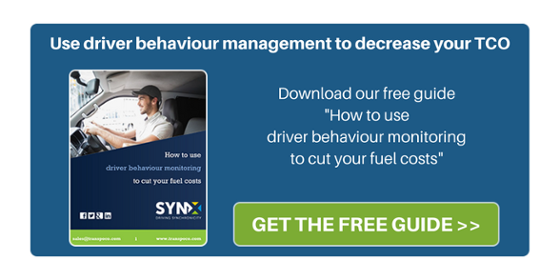
Driver behaviour and its management do have an extremely important impact on the activity of your fleet, but most of all on the total cost of ownership (TCO), including the direct and indirect costs of a vehicle.
If we think about TCO, we should consider not only the 60% running costs in usage of a vehicle itself but also the important 40% attributed to the impact of driver behaviour on the total cost of ownership. Which type of costs are included in the 40% and how do we keep them under control? And what is key to better driver behaviour management?
1. Fuel consumption
Driver behaviour has a demonstrable impact on fuel—if driving style is aggressive or unsafe, fuel consumption increases and safety becomes an issue.
2. Added maintenance
Linked to the former point: if your drivers practice an aggressive style, your vehicle’s roadworthiness could be at risk; it is more likely that your vehicle will suffer wear and tear, not to mention the increased risk of collisions or breakdown…
3. Insurance premiums
An unpredictable variable that can swing dramatically if your drivers are putting themselves, other road users and your vehicles at risk—insurance premiums rocket if the number of incidents creep up. But they can be avoided!
4. Incidents management
When unsafe driving style translates into incidents, it opens a whole new and painful chapter in incident management, investigations as well as legal costs.
5. Downtime
When aggressive driving results in incident downtime or your vehicles suffer maintenance issues that can be prevented simply by training drivers, it means less time on the road for vehicles that should be doing their job and developing your business
6. Missed opportunities
Furthermore, less time on the road due to the consequences of bad driving behaviour means less business opportunites.
Setting up tools for more intelligent driver behaviour management does not equate to a new expense in your fleet costs, but rather, they are a way to recover them and set up processes that can only benefit your business and positively affect your TCO. Get in touch with our experts if you want to learn more.





